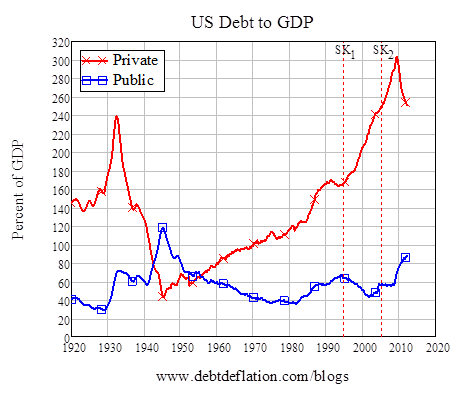CultureCitizen
Silver Member
- Jun 1, 2013
- 1,932
- 140
- 95
And the Fed is actually a mixed entity partly private and partly public, which might just be the worst of both worlds.
I'm not sure how you would conclude that. There is nothing private about it's operation. It's controlled by congress for everything.
The only thing having private investors does, is bring capital into it's operations, which of course requires dividends. What exactly is the downside?
It's a cultural organization issue. I find it hard to believe that investors have absolutely no inffluence in the Federal reseve banks. I find it hard to believe.
Inside the New York Fed: Secret Recordings and a Culture Clash

